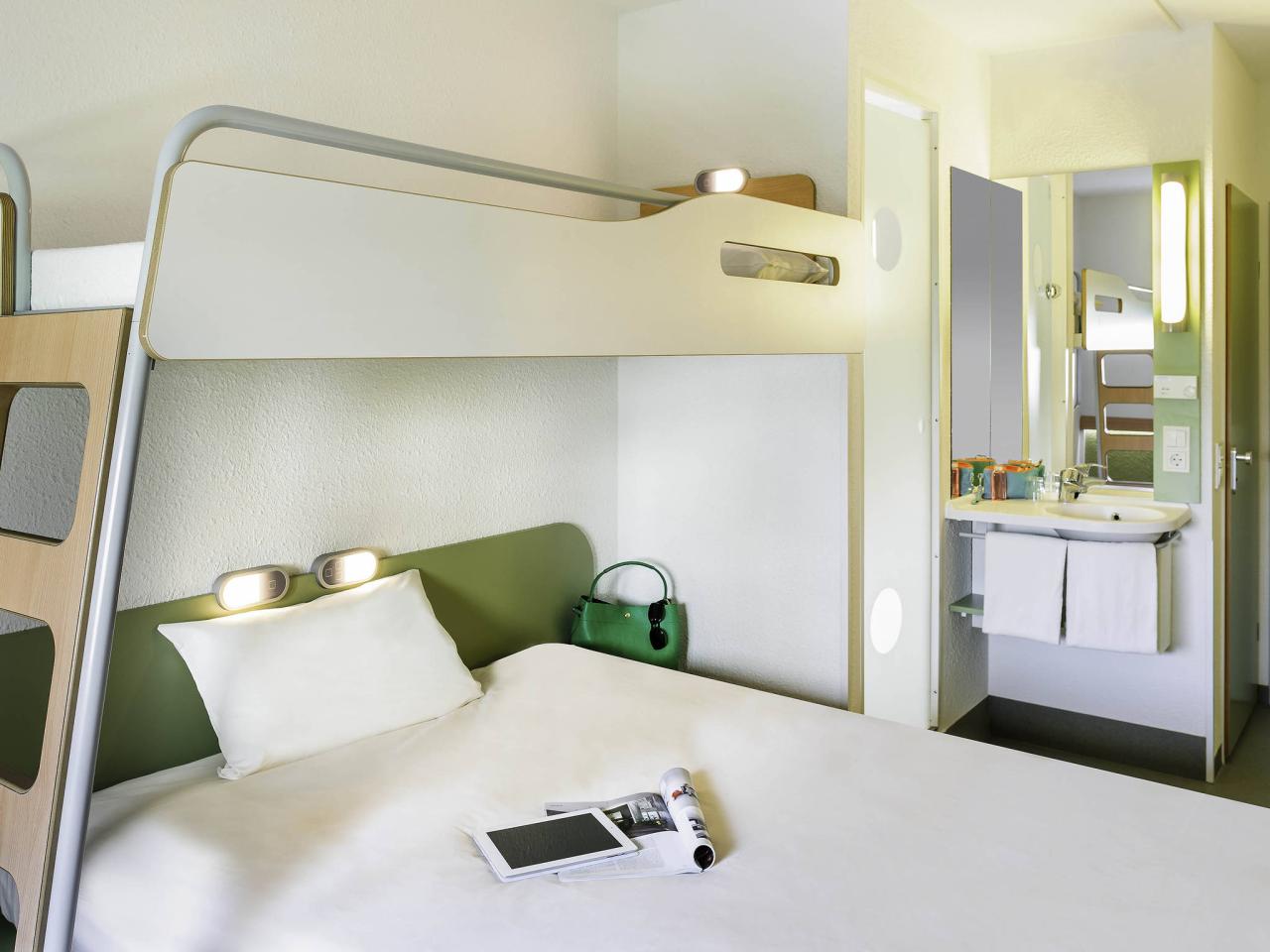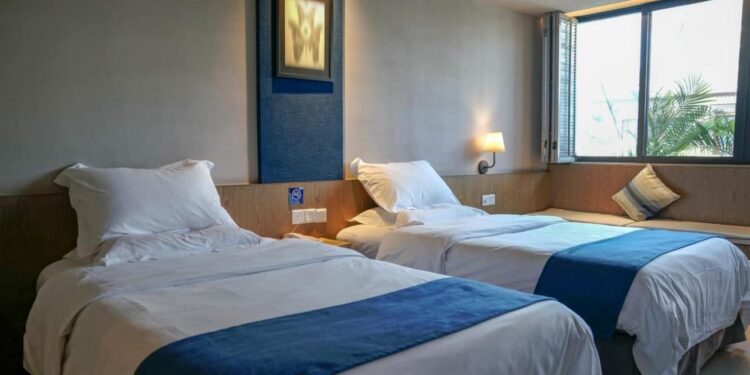In the ever-evolving world of travel, the concept of luxury has been redefined. It’s no longer just about opulent suites and extravagant amenities; it’s about smart choices, value for money, and experiences that are rich in culture and personal growth, not just price. This shift has propelled budget hotels into the spotlight. No longer synonymous with low quality, today’s budget hotels offer a compelling blend of affordability, style, and essential comforts. They are the savvy traveler’s secret weapon, providing a comfortable and convenient base from which to explore the world without breaking the bank. This comprehensive guide will delve into the rise of budget hotels, what to look for, and how they have become a key player in making travel more accessible and enjoyable for everyone.
The Evolution of the Budget Hotel

For many years, “budget hotel” was a phrase that conjured images of worn-out decor, questionable cleanliness, and a lack of basic services. These establishments were seen as a necessary evil for the traveler with limited funds, a place to simply endure the night before moving on. However, the travel landscape has changed dramatically. The rise of a new generation of travelers, from digital nomads to backpackers and young families, has created a demand for accommodations that are affordable yet stylish, functional yet comfortable.
This demand spurred an innovation in the hospitality industry. A new wave of budget hotel chains emerged, focusing on what truly matters to the modern traveler: a clean, comfortable bed, reliable Wi-Fi, and a convenient location. They stripped away the unnecessary extras—such as full-service restaurants, bellhops, and extensive room service—and invested in high-quality basics and smart design. The result is a new class of hotels that prove that affordability does not have to come at the expense of quality or style. They’ve made travel more inclusive, allowing people to extend their trips, visit more destinations, and spend their hard-earned money on experiences rather than expensive lodging.
What to Look for in a Modern Budget Hotel
A modern budget hotel is defined not by its low price, but by its high value. It’s a place that provides everything you need and nothing you don’t. Here are the key features that set them apart.
A. Prime Location at a Fraction of the Cost: Modern budget hotels are strategically located to offer maximum convenience. They are often found near public transportation hubs, airports, or in the vibrant, up-and-coming neighborhoods of a city. This location allows you to easily explore the destination without the added expense of taxis or a rental car.
B. Sleek, Efficient, and Smart Design: The days of cramped, dimly lit rooms are over. Today’s budget hotel rooms are a marvel of compact design. They are minimalist, clean, and often feature clever storage solutions. The use of bright colors, high-quality lighting, and thoughtful layouts makes the spaces feel much larger and more inviting than they are. The focus is on a great night’s sleep, so beds are often of a higher quality than you might expect.
C. High-Speed and Reliable Connectivity: In today’s interconnected world, reliable internet is a necessity, not a luxury. Budget hotels understand this and often provide free, high-speed Wi-Fi throughout the entire property. This is a crucial feature for both business travelers and leisure guests who need to stay connected.
D. Essential Amenities and Services: While they don’t offer the frills of a luxury hotel, modern budget hotels provide all the essential amenities. This typically includes a 24-hour front desk, a self-service laundry facility, and a communal lounge or workspace. Many also offer a simple, complimentary breakfast to get your day started right. The focus is on functionality and convenience.
E. A Vibrant and Social Atmosphere: A growing number of budget hotels are focusing on creating a social hub. Their lobbies and common areas are designed as multi-purpose spaces where guests can work, socialize, or relax. This communal atmosphere is particularly appealing to solo travelers and digital nomads who are looking to connect with others without the forced social nature of a hostel.
F. Focus on Sustainability: Many modern budget hotels are also embracing sustainability. They often use energy-efficient lighting, have water-saving fixtures, and have a recycling program. This commitment to the environment not only reduces their operating costs but also appeals to a new generation of travelers who are conscious of their environmental footprint.
How to Find the Perfect Budget Hotel

Finding the ideal budget hotel is all about doing your research and knowing what to look for. Here’s a guide to help you find a great stay that won’t break the bank.
A. Utilize Online Travel Agencies (OTAs) with Filters: Websites like Booking.com, Traveloka, and Hotels.com are excellent tools. Use their filters to search specifically for your price range and non-negotiable amenities. Look for hotels with high ratings and a good number of reviews.
B. Read Reviews for Specific Details: Don’t just look at the star rating. Read the guest reviews for specific details about the things that matter most to you. Look for comments about the cleanliness of the rooms, the quality of the bed, the speed of the Wi-Fi, and the friendliness of the staff. Pay close attention to reviews from travelers who had a similar purpose for their trip, such as a business traveler or a family with children.
C. Consider the Neighborhood: The location is key to saving money. A hotel in a neighborhood slightly outside the city center can be significantly cheaper, especially if it’s located near a metro or bus line. Use online maps to check the hotel’s proximity to public transportation and the attractions you want to visit.
D. Look for a Hotel Chain with a Good Reputation: Many reputable hotel chains now have a budget-friendly brand. Examples include Ibis, Premier Inn, and Motel One. These brands offer a consistent level of quality and service, so you can book with confidence, knowing you’ll get a clean room and reliable amenities.
E. Check the Hotel’s Official Website: Once you’ve found a promising option on an OTA, check the hotel’s official website. They may offer special deals, discounts for booking directly, or packages that aren’t available on third-party sites. The website will also give you a better feel for the hotel’s style and a more detailed list of its amenities.
F. Be Flexible with Your Dates: If your travel dates are flexible, you can often find better deals by traveling during the off-season or by booking your stay on a weekday rather than a weekend. Prices can vary significantly, so a little flexibility can go a long way in saving you money.
The Future of Budget Hotels
The budget hotel industry is a dynamic and innovative sector. As traveler expectations continue to evolve, so too will the hotels that serve them. The future of budget hotels will likely be shaped by several key trends.
First, technology will play an even greater role. We can expect to see more hotels offering a completely automated and seamless experience, from mobile check-in and digital room keys to in-room tablets that control everything from the lighting to the temperature. This technology will streamline operations and allow hotels to focus on providing personalized, human-centered service.
Second, there will be a greater emphasis on hyper-local experiences. Budget hotels will increasingly partner with local businesses, from cafes and restaurants to tour guides and artists. The hotel will become a gateway to the local culture, offering guests an authentic and immersive experience that feels a world away from a standardized chain.
Third, the line between hotels and hostels will continue to blur. We will see more budget hotels offering a combination of private rooms and shared communal spaces, providing a social atmosphere for those who want it without sacrificing the privacy of a hotel room. This hybrid model caters to the best of both worlds.
Finally, sustainability and design will be non-negotiable. Future budget hotels will not only be affordable but also environmentally conscious and aesthetically pleasing. They will use smart, eco-friendly materials and design to create a beautiful and responsible space for the modern traveler.
Conclusion
The rise of the modern budget hotel is a testament to the idea that smart travel is accessible to everyone. These establishments have shattered the old stereotype of “cheap and nasty” and replaced it with a new standard of “affordable and excellent.” By focusing on what truly matters to today’s traveler—a comfortable stay, a great location, and essential amenities—they have created a powerful new category in the hospitality industry. They empower us to travel more, to explore new places, and to spend our money on the experiences that enrich our lives, rather than on the costs of a lavish room.
For the savvy traveler, the budget hotel is an intelligent choice. It’s an opportunity to experience a destination fully, to connect with a new culture, and to do so without the financial burden of a luxury stay. It proves that you can have style, comfort, and convenience without the hefty price tag. The future of travel is inclusive, and budget hotels are leading the charge, making the world more accessible one well-designed, affordable room at a time. So, the next time you plan a trip, consider the smart choice. You might just find that the most memorable part of your journey isn’t the hotel itself, but the freedom and flexibility it gave you to explore the world on your own terms.










Discussion about this post